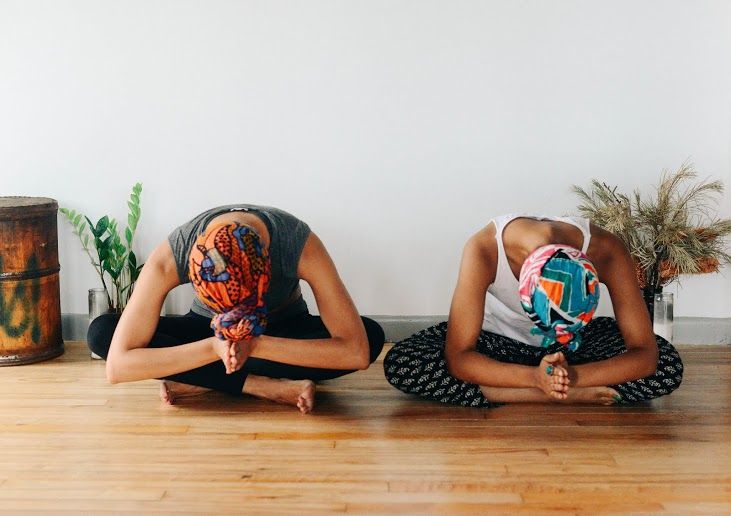Knowing about plants, or having access to them, has long been a source of pride for many people. Healers recognized the value of emotional and spiritual well-being in achieving physical health even before penicillin or X-rays. Traditional Chinese Medicine and Ayurveda are two of the most well-documented ancient holistic health approaches. Traditional Chinese Medicine dates back about 5,000 years and has evolved into a complicated system of diagnostic and treatment approaches that are still used today. Traditional Chinese Medicine is holistic, emphasizing the human body's integrity as well as the tight interaction between humans and their social and environmental environments. Traditional Chinese Medicine focuses on maintaining health and improving the body's resilience to disease in the treatment of disease. Our forefathers went to tremendous lengths to preserve their knowledge of medicinal and culinary plants so that we may use them in the future. During the Middle Passage, enslaved Africans risked their lives to carry plants with cultural, spiritual, and medicinal value. The Irish fought to keep their old herbal traditions from being destroyed by recurrent invasions. People's tenacity in preserving their healing practices amid adversity such as forced migration from their motherlands is a monument to their fortitude. Some people's stories stretch back further than any textbook can allow, and their herbal knowledge has been passed down by oral tradition.
Alternative medicine is sometimes derided by mainstream scientists as charlatanism, contending that any alternative that has been demonstrated to work is, in reality, conventional medicine. Alternative medicine proponents, on the other hand, frequently cite personal experiences as proof of the efficacy of many of these "unproven" procedures. Many people prefer natural substances to synthetic ones. Many individuals prefer natural substances over man-made compounds because they believe that what's natural is healthier and safer by definition—but this is a risky assumption. Many natural substances are actually harmful (e.g., cyanide). And natural compounds with health benefits, such as digitalis, a drug derived from the foxglove plant that's been used to treat heart failure since the late 1700s, have a narrow amount that provides benefit is only slightly less than the amount that causes toxicity, making it alarmingly easy for their use to cause harm.
The main argument against holistic medicine is that the medicine has not been proven to be effective. If there is evidence for a treatment's efficacy, it isn't considered "alternative" medicine... It's simply referred to as "medicine." These medications and treatments fail to deliver genuine results when put through thorough, controlled clinical trials. Alternative medicine is essentially snake oil, peddled by those who are either dishonest or unethical. Giving a patient a placebo without their knowledge is unethical. The placebo effect is legitimate, according to research, and it can improve a patient's health. There is evidence that alternative treatments take advantage of the placebo effect and that patients who receive this type of treatment see real results and a lot of the time our subconscious will make the desired effect happen. Either tell the patient that the treatment is a placebo (in which case the treatment is no longer effective) or tell them the truth. Furthermore, adopting longer and more sympathetic discussions with a physician is something that may be done within the context of genuine medicine; sugar pills aren't required to make it work.
However, doctors are prescribing medications to patients far too quickly, and this is becoming a severe problem. From the United States' opioid problem to the global growth in antibiotic-resistant bacteria, it's obvious that too many doctors are caving into patient pressure and issuing prescriptions. Even if patients may disagree, the greatest treatment is often to do nothing and let the body heal on its own. Alternative treatments and therapies can meet a patient's demand for a visible course of therapy while also allowing the body's natural healing process to take place, which is preferable to relying too heavily on medications. According to research, physician-patient consultations can be helpful in and of themselves. Alternative medicine practitioners are more likely to provide longer (and more sympathetic) consultations, and patients who perceive health systems to be too bureaucratic and impersonal may benefit from this more personal touch. Some patients may never fully trust or feel at ease with standard treatments, so having alternative options available may be beneficial. Alternative medicine has several benefits, one of which is that it heals the body and is aimed to cure the underlying cause of the pain or sickness. Chiropractors and other alternative medicine practitioners can work at the base of the problem by recognizing and treating the ailment. Holistic Complementary therapies appeal to many patients because they appear to be natural and non-toxic. Certain complementary therapies can aid in the treatment of specific symptoms or adverse effects. However, nothing is known about how they can interact with existing treatments such as cancer medicines or radiotherapy. Furthermore, some types of complementary or alternative medicine may impair the effectiveness of traditional treatment. Complementary therapies appeal to many patients because they appear to be natural and non-toxic. Certain complementary therapies can aid in the treatment of specific symptoms or adverse effects. However, nothing is known about how they can interact with existing treatments such as cancer medicines or radiotherapy. Furthermore, some types of complementary or alternative medicine may impair the effectiveness of traditional treatment.


 RSS Feed
RSS Feed
